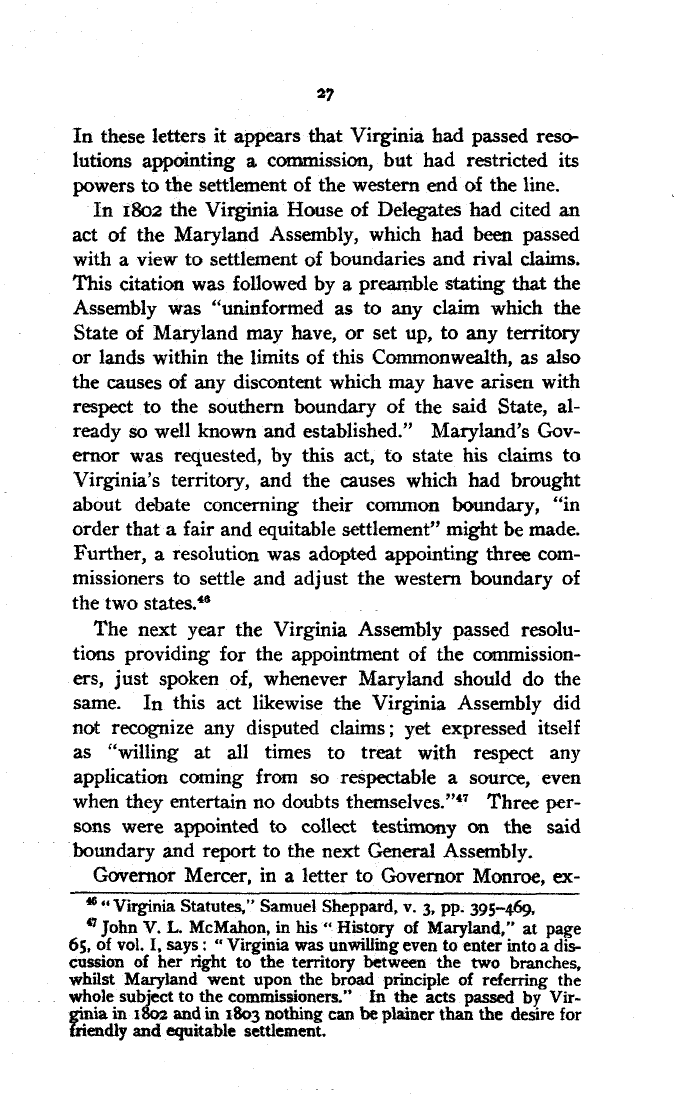| 27
In these letters it appears that Virginia had passed reso-
lutions appointing a commission, but had restricted its
powers to the settlement of the western end of the line.
In X802 the Virginia Hose of Delegates had cited an
act of the Maryland Assembly, which had been passed
with a view to settlement of boundaries and rival claims.
This citation was followed by a preamble stating that the
Assembly was "uninformed as to any claim which the
State of Maryland may have, or set up, to any territory
or lands within the limits of this Commonwealth, as also
the causes of any discontent which may have arisen with
respect to the southern boundary of the said State, al-
ready so well known and established." Maryland's Gov-
ernor was requested, by this act, to state his claims to
Virginia's territory, and the causes which had brought
about debate concerning their common boundary, "in
order that a fair and equitable settlement" might be made.
Further, a resolution was adopted appointing three com-
missioners to settle and adjust the western boundary of
the two states.4$
The next year the Virginia Assembly passed resolu-
tions providing for the appointment of the commission-
ers, just spoken of, whenever Maryland should do the
same. In this act likewise the Virginia Assembly did
not recognize any disputed claims; yet expressed itself
as "willing at all times to treat with respect any
application coming from so respectable a source, even
when they entertain no doubts themselves."" Three per-
sons were appointed to collect testimony on the said
boundary and report to the next General Assembly.
Governor Mercer, in a letter to Governor Monroe, ex-
* "Virginia Statutes," Samuel Sheppard, v. 3, pp. 395-49%
'7 John V. L. McMahon, in his " History of Maryland," at page
65, of nol. I, says: " Virginia was unwilling even to enter into a dis-
cussion of her right to the territory between the two branches,
whilst Maryland went upon the broad principle of referring the
whole subject to the commissioners." In the acts passed by Vir-
ia in 1 8nz and in i8o3 nothing can be plainer than the desire for
~~dly and equitable settlement.
|

